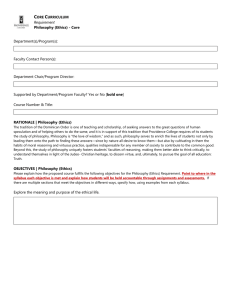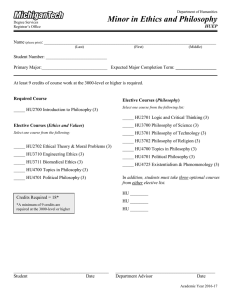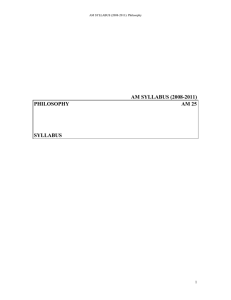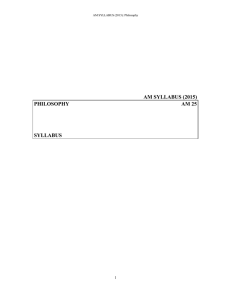Use to propose new general education courses (except writing courses),... renew existing gen ed courses and to remove designations for...
advertisement
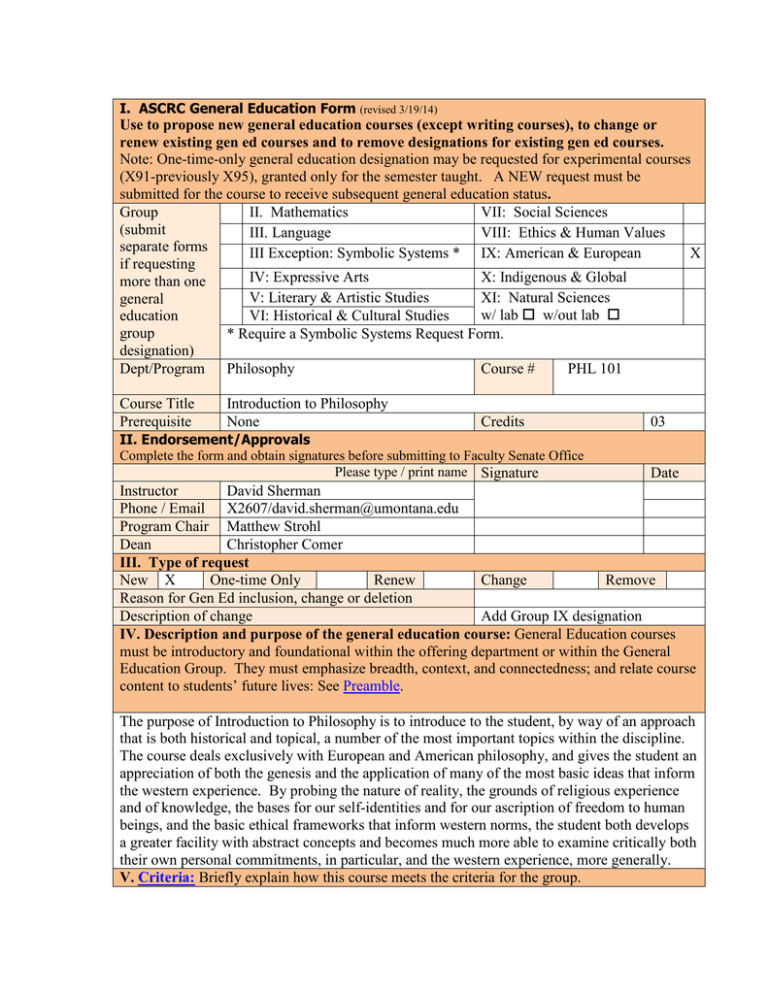
I. ASCRC General Education Form (revised 3/19/14) Use to propose new general education courses (except writing courses), to change or renew existing gen ed courses and to remove designations for existing gen ed courses. Note: One-time-only general education designation may be requested for experimental courses (X91-previously X95), granted only for the semester taught. A NEW request must be submitted for the course to receive subsequent general education status. Group II. Mathematics VII: Social Sciences (submit III. Language VIII: Ethics & Human Values separate forms III Exception: Symbolic Systems * IX: American & European X if requesting IV: Expressive Arts X: Indigenous & Global more than one V: Literary & Artistic Studies XI: Natural Sciences general w/ lab w/out lab education VI: Historical & Cultural Studies group * Require a Symbolic Systems Request Form. designation) Dept/Program Philosophy Course # PHL 101 Course Title Prerequisite Introduction to Philosophy None Credits 03 II. Endorsement/Approvals Complete the form and obtain signatures before submitting to Faculty Senate Office Please type / print name Signature Date Instructor David Sherman Phone / Email X2607/david.sherman@umontana.edu Program Chair Matthew Strohl Dean Christopher Comer III. Type of request New X One-time Only Renew Change Remove Reason for Gen Ed inclusion, change or deletion Description of change Add Group IX designation IV. Description and purpose of the general education course: General Education courses must be introductory and foundational within the offering department or within the General Education Group. They must emphasize breadth, context, and connectedness; and relate course content to students’ future lives: See Preamble. The purpose of Introduction to Philosophy is to introduce to the student, by way of an approach that is both historical and topical, a number of the most important topics within the discipline. The course deals exclusively with European and American philosophy, and gives the student an appreciation of both the genesis and the application of many of the most basic ideas that inform the western experience. By probing the nature of reality, the grounds of religious experience and of knowledge, the bases for our self-identities and for our ascription of freedom to human beings, and the basic ethical frameworks that inform western norms, the student both develops a greater facility with abstract concepts and becomes much more able to examine critically both their own personal commitments, in particular, and the western experience, more generally. V. Criteria: Briefly explain how this course meets the criteria for the group. Introduction to Philosophy is broad both in its themes and in its chronology. It covers many of the most basic areas within western philosophy, and it spans roughly 2500 years, from the pre-Socratic naturalists of 600 B.C to contemporary philosophers struggling with more refined problems. Moreover, the various topics that make up the course are an introduction to various themes that are dealt with more fully and complexly at the upper level. Metaphysics, epistemology, religion, and freedom and ethics, which constitute five of the six areas that are dealt with, are all routinely taught at the upper level. VI. Student Learning Goals: Briefly explain how this course will meet the applicable learning goals. 1. Students should be able to demonstrate that they understand both the genesis and the development of the various issues and problems that surround our accounts of reality, religion, knowledge, self-identity, freedom, and ethics in the western tradition. 2. Students should be able to demonstrate how the distinctively western experience begins with the use of reason, and should be able to critically evaluate the western emphases on reason and on the individual 3. VII. Assessment: How are the learning goals above measured? Please list at least one assignment, activity or test question for each goal. 1. What are the opposed positions of Heraclitus and Parmenides on the relationship of language and reality? How does Plato reconcile these positions, and how does his position enable us to know, objectively, what a particular thing is? 2. Fully describe Aristotle’s account of personal responsibility. (Your answer should include definitions of “voluntary action,” “involuntary action,” “mixed action,” “by ignorance,” and “in ignorance.”) 3. VIII. Justification: Normally, general education courses will not carry pre-requisites, will carry at least 3 credits, and will be numbered at the 100-200 level. If the course has more than one pre-requisite, carries fewer than three credits, or is upper division (numbered above the 200 level), provide rationale for exception(s). N/A IX. Syllabus: Paste syllabus below or attach and send digital copy with form. The syllabus should clearly describe learning outcomes related to the above criteria and learning goals. See attached. Please note: Approved general education changes will take effect next fall. General education instructors will be expected to provide sample assessment items and corresponding responses to the Assessment Advisory Committee.




